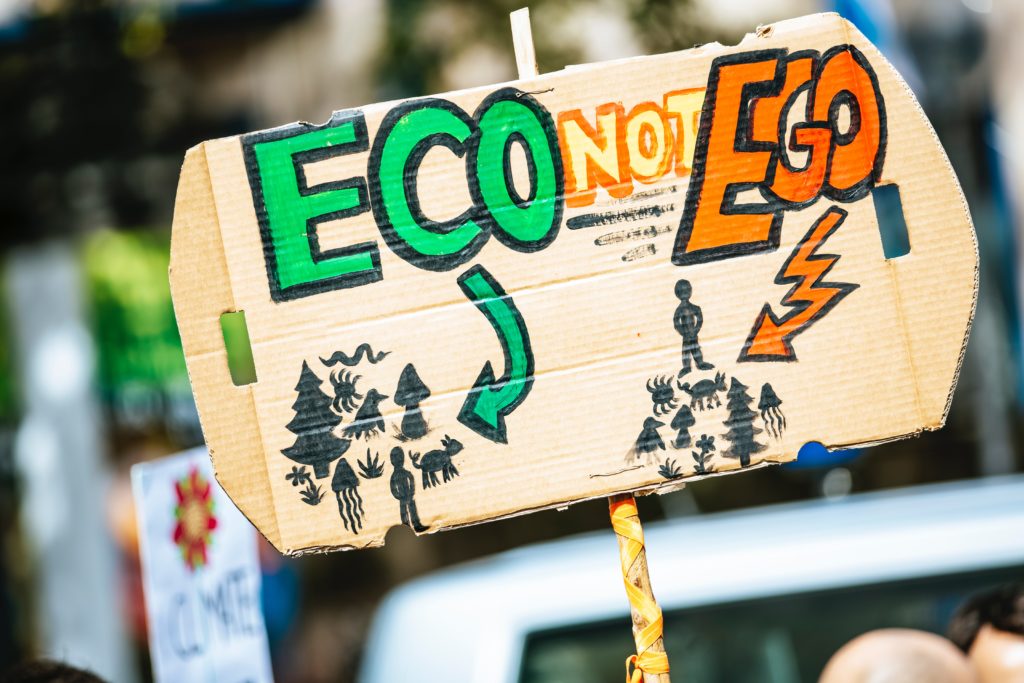4 Mins Read
Already acknowledged as an ambitious nation due to a 2045 net-zero target, Sweden is flexing its eco-credentials even further. The country has announced intentions to account for consumption-based emissions within its targets, something no other country has pledged. This means that products made overseas for import into Sweden will have their carbon emissions added to the nation’s overall total.
Traditionally, countries are framing their net-zero targets around emissions produced strictly within their own borders. Including overseas emissions reporting is considered to be a complex yet laudable undertaking by Sweden. The news will no doubt please domestic eco icon Greta Thunberg, who has long campaigned for consumption-based emissions to be acknowledged and accounted for.

Signing the intention into effect
A cross-parliamentary environmental committee made the decision to include consumption-based emissions in Sweden’s overall footprint. It comes as multiple organisations campaigned for wider acceptance of environmental responsibility.
“The inclusion of consumption emissions in Sweden’s emission targets is historical and something that many organisations have worked towards for a long time,” Karin Lexén, secretary-general at the Swedish Society for Nature Conservation, said in a statement.
So far, the measure has only been recommended. For adoption to be likely, issues including Sweden’s export market, international aviation and shipping will need to be clarified. The stumbling block is expected to be a lack of international standardisation for the calculation process. Keen environmental observers have noted that unreliable emissions reporting from manufacturing processes are likely to adversely affect end results and offsetting endeavours.

The case for consumption-based emissions accountability
Sweden taking the first step with extended emissions liability represents awareness on its part but shines a light on all other countries who are shying away from the issue. The European Geosciences Union might have the answer why other nations are reluctant to follow suit. The organisation estimated that 22 percent of global carbon emissions come from goods made in one place, specifically for sale in another. Meanwhile, the Global Carbon Project claims that up to 60 percent of Sweden’s total emissions are tied up in imports. The revelation makes it even more notable that the country is seeking to account for them.
“Sweden adopting this target would hopefully set a new standard on how to address consumption emissions and spur other European countries to follow suit,” climate scientist Zeke Hausfather told Climate Home News. Other climate experts have agreed, stating that no nation would want to look as though it was being left behind in the race to net-zero. However, performative target setting and bureaucratic feet-dragging would have to be guarded against.

The role of human behaviour in the climate crisis
The suggestion-making committee was, reportedly, very influenced by a report from the Chalmers University of Technology. In it, researchers claim that fundamentally changing consumer behaviour is the only way to get in line with the Paris Agreement. Issues such as buying sustainable tech, adopting more plant-based foods and using cars less were all detailed. Though education and access to alternatives will be key.
Sweden appears to have been making inroads for some time. In 2020 it was revealed that a grocery store was pricing food according to its carbon footprint, to see if consumers could be swayed to be climate-friendly based on household budgets. In the same year, IKEA took its first steps towards sull sustainability, by opening its first-ever secondhand store.
Over in Norway, online grocery store Oda decided to take a proactive stance on consumer education. The store began printing the carbon footprint of all items on customer receipts, to give insight into the impact their dietary choices make. The result, according to the retailer, was a significant drop in demand for red meat and other climate-negative products.
Lead photo by Oliver Schmid at Pexels.





